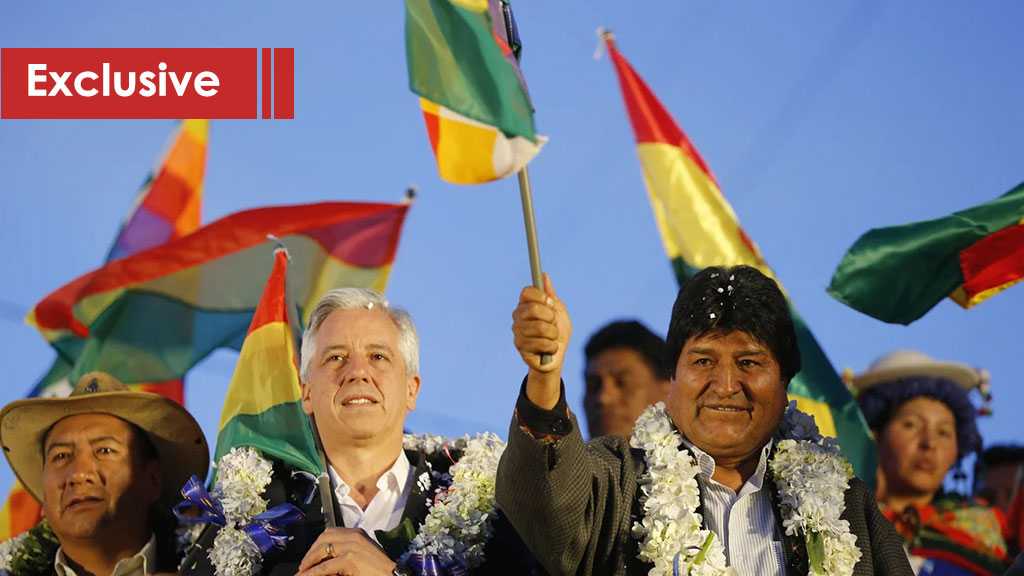Like Túpac Katari, indigenous Aymara leader more than 200 years ago, confronting the Spaniards, Evo Morales was betrayed and ‘dismembered’ by his own people, recruited and paid by the agents of the most destructive, nefarious and murderous dark elite that governs and has governed for over two hundred years our planet, the United States of America. With their worthless fiat-Ponzi-pyramid money, the made-out-of-thin-air US dollar, they create poverty throughout the globe, then buy off the weak and poor to plot against the very leaders that have worked for years to improve their social conditions.
It’s become a classic. It’s being called a Color Revolution, and it’s been taking place on all Continents. The list of victim-countries includes, but is not exhaustive – Colombia, Honduras, Argentina, Paraguay, Ecuador, Chile, Brazil, in some ways also Uruguay (the current left-leaning government is powerless and has to remain so, otherwise it will be “changed”… that’s the name of the game) – and now also Bolivia. – Then there are Georgia, Ukraine, Iraq, South Sudan, Libya, Afghanistan, Indonesia; and the lawless rulers of the universe are attempting to “regime change” North Korea, Syria, Iran, Venezuela, Cuba, Nicaragua – and on a larger scale China and Russia (I just returned from China – where the Government and people are fully aware what Washington’s intentions are behind every move they make).
In Africa, Africom, the US military Africa Command, buys off almost every corrupt African leader put in place by Africa’s former and new European colonialists, so they may continue sucking the riches out of Africa. These African leaders backed by Africom keep the African population in check, so they will not stand up. In case they won’t quite manage, “they” created the fear-squad called, Boko Haram, an off-spring of ISIS / IS – the Islamic State, created by the same creator, the CIA, Pentagon and NATO. The latter represents the European US-puppet allies; they keep raping Africa and reaping the benefits of her plentiful natural resources, and foremost, make sure that Africans stay subdued and quiet. Those who don’t may easily be “disappeared”. It’s Arica. But, have “they” noticed, Africa is moving, is gradually waking up?
And yes, not to forget, the “developed” and industrialized Europe, where sophisticated “regime change” over the years has subdued a largely well-off population, numbed and made apathetic by endless pro-capitalist propaganda and consumerism – Germany, UK, Netherlands, Denmark, Sweden, France, Italy, Spain – look what they have done to Greece! – Greece has become a red-flag warning for every EU nation that may dare to step out of US-dictated lockstep, of what might happen to them.
The list goes on with Eastern European EU countries, mostly former Soviet republics or Soviet satellites. They are EU members thanks to the UK, Washington’s mole in the EU, or as I like to call it – the European non-union – no Constitution, no solidarity, no common vision. They are all fiercely anti-Russia and most are also anti-Europe, but are made to – and love to eat and drink from the bowl of the EU-handouts, compliments of EU taxpayers. That’s about the state of the affairs we are in. There is, of course, much more coercion going on, but you get the picture. US interference is endless, merciless, reckless, without scruples and deadly.
Bolivia is just the latest victim. The process of Color Revolution is always more or less the same – a long preparation period. The coup d’état against Evo has been under preparation for years. It began already before Evo was first elected, when Washington realized that after the Bolivian people’s purging of two of Washington’s imposed “stooges” Presidents, in 2003 and 2005, Bolivia needed a respite. But the empire never gives up. That is a golden rule written in their unofficial Constitution, the PNAC (Plan for a New American Century), the writing of which has begun just after WWII, is regularly adjusted and updated, even name-changed (from Pax Americana to PNAC), but is still very much alive and ticking.
The coup against Evo Morales’ Government is not only because Washington does not tolerate any socialist government, and least in its “backyard”, but also – and maybe foremost – because of Bolivia’s riches in natural resources, gas, oil, a long list of minerals and metals – and lithium, the use of which is expected to triple over the next ten years, as it is used in electric cars and batteries. And as we know from the rapidly growing Green Movement, the future is out of hydrocarbon-driven into electric cars. No matter how the electricity is produced and how much environmental damage is done in producing the new flag, but still individual ‘mobility’. As neoliberal economists would say, “that’s just an externality”.
The first of the two US-imposed Presidents at the turn of the century, was Gonzalo Sánchez de Lozada, also called “Goni”, who privatized Bolivia’s rich hydrocarbon resources to foreign, mostly US, petro-corporations for a pittance. He was “elected” in 2002 against the indigenous, Aymara candidate, Evo Morales. When Goni was disposed of in a bloody people’s coup (about 60 dead) in 2003, he was replaced by his Vice-President, Carlos Mesa, the very key opponent of Evo’s, in the 20 October 2019 elections – who, following the same line of Goni’s privatization policies, was also overthrown by the Bolivian people in 2005. This led to a new election late in 2005 – and that’s when Evo finally won by a landslide and started his Presidency in January 2006.
What he has achieved in his almost 14 years of Presidency is just remarkable – more than significant reductions of poverty, unemployment, analphabetism, increase in health indicators, in national reserves, in minimum wages, pension benefits, affordable housing – in general wellbeing, or as Evo calls it, “living well”.
That’s when Washington decided to step back for a while – and regroup, to hit again in an appropriate moment. This moment was the election three weeks ago. Preparation for the coup intensified a few months before, when Bolivia’s Vice-President, Álvaro Marcelo García Linera, told the media that every day there were reports that US Embassy agents were interfering in the country’s internal and local affairs.
The manipulated election in 2002 is recorded in an outstanding film, “Our Brand is Crisis”, a 2005 American documentary by Rachel Boynton on American political campaign marketing tactics in Bolivia by Greenberg Carville Shrum (GCS) – James Carville was previously President Clinton’s personal assistant – the documentary.
Then, like today, the coup was orchestrated by the CIA via the “legitimate” body of the Organization of American States (OAS). The US Ambassador to the OAS openly boasts paying 60% of OAS’ budget – “so, better don’t mess with us”.
Less than a week before the October 20 election, Carlos Mesa was trailing Evo Morales with 22 against 38 points. Under normal circumstances it’s is virtually impossible that in a few days a candidate picks up that much of a difference. The election result was Mesa 37% and Morales 47% which would give Morales a first-round win, as the winning candidate needs a margin of ten points. However, already before the final tally was in, the OAS, the US and the usual puppets, the European Union, complained about election ‘irregularities’ – when the only irregularities were manufactured in the first place, namely the drastic increase in Mesa’s percentage from 22 to 37 points.
Evo declared himself the winner on 20 October, followed immediately by violent anti-Evo riots throughout the country, but mostly in the oil-rich Santa Cruz area – home of Bolivia’s oligarchs and elite. The protests lasted for about three weeks during which at least three people died, when last Sunday, November 10, Evo was “suggested” by the military brass, supported by the OAS (US) to step down with his entire entourage, or else. He resigned, because he wanted the riots to stop and his countrymen to continue living in peace. But violence hasn’t stopped, to the contrary, the opposition has become fiercer in their racist attacks on indigenous people, targeting them with live ammunition. The dead toll as of today has reached at least 20.
President Morales asked for, and was granted political asylum in Mexico. The Vice-President, Alvaro Linera, and most of Morales’ cabinet members followed him to Mexico. The President of the Senate, Ms. Adriana Salvatierra, also of the MAS party, according to the Constitution, would have been the legitimate interim-President. But she was also forced to resign, and so were Victor Borda, the leader of the Chamber, and Rubén Medinaceli, First Vice President of the Senate. They all had to resign. In total some 20 high-ranking officials of Evo’s Government took refuge in the Mexican Embassy in La Paz, before they flew to Mexico.
Evo has since said he wants to return to Bolivia, to be there for the millions of his supporters. Yes, still a sizable majority of Bolivians support Evo and his Movement towards Socialism (MAS). There is a mass of peaceful unarmed Evo supporting demonstrators, growing every day. They are being brutally beaten by US trained and “bought” police and military forces. Indeed, the commander of Bolivia’s armed forces, Williams Kaliman, served in earlier days as a military attaché at the Bolivian Embassy in Washington. During that time he was secretly ‘recruited’ to be trained by what then was called the School of the Americas, and which is now the Western Hemisphere Institute for Security Cooperation, located at Fort Benning near Columbus, Georgia. Apparently Kaliman was not the only one of high-ranking Bolivian military and police officers having been subjected to this torturer and coup plotter training.
On Tuesday, 12 November, an extraordinary session of both chambers (Deputies and Senate) of the Plurinational Legislative Assembly (Parliament) was convened, to officially accept President Morales’ resignation, but the representatives of the Movement to Socialism (MAS), which are the majority in both chambers, did not attend because they were told by the opposition that their safety and that of their families could not be guaranteed. As a consequence, Parliament had suspended its session due to the lack of quorum.
Nevertheless, Jeanine Añez, an opposition senator, declared herself interim-President, and even though her nomination is illegal and unconstitutional, the Constitutional Court confirmed the legality of the transfer of power. But who could blame the judges of the Constitutional Court? They want to be on the right side of the fence, now that the Americans are soon expected to rule the country. Ms. Añez is from the right-wing Social Democrat Movement (not to confuse with MAS = movement towards socialism), and she is known to be fiercely anti-Morales. If her coronation looks and sounds like the one of Juan Guaidó in Venezuela, it is because her self-nomination is like Juan Guido’s, a US-supported farce. Washington has immediately recognized Ms. Jeanine Añez as (interim) President of Bolivia. She, as well as Carlos Mesa, have been groomed to become the next Bolivian leaders, when new elections are held – probably sometime in January 2020. Especially, Carlos Mesa is well known as a US-supporter from his earlier failed stint at the Bolivian Presidency (2003 – 2005).
Earlier, Jeanine Añez, tweeted, “I dream of a Bolivia free of satanic indigenous rites, the city is not for the Indians who should stay in the highlands or the Chaco”. That says it all, where Bolivia is headed, unless – unless another people’s revolution will stop this nefarious course. Ms. Añez apparently has since removed the tweet.
One of the internal drivers of the ‘golpe’ is Luis Fernando Camacho, a far-right multi-millionaire, from the Santa Cruz region, where the US have supported and encouraged separatism. Camacho, a religious bible fanatic, received support from Colombia, Brazil and the Venezuelan opposition – and, of course, he is the US henchman to lead the ‘coup’ internally.
As Max Blumenthal from “The Grayzone” reports,
“When Luis Fernando Camacho stormed into Bolivia’s abandoned presidential palace in the hours after President Evo Morales’s sudden November 10 resignation, he revealed to the world a side of the country that stood at stark odds with the plurinational spirit its deposed socialist and Indigenous leader had put forward. – With a Bible in one hand and a national flag in the other, Camacho bowed his head in prayer above the presidential seal, fulfilling his vow to purge his country’s Native heritage from government and “return God to the burned palace.” Camacho added “Pachamama will never return to the palace,” referring to the Andean Mother Earth spirit. “Bolivia belongs to Christ.”
Still, there is hope. Bolivians are known to be sturdy and staunch defenders of their rights. They have proven that best in the overthrow of two foreign-imposed successive Presidents in 2003 and 2005, “Goni” and Carlos Mesa respectively. They brought their Aymaran Evo Morales to power in 2006, by an internationally observed, fully democratic election.
There are other signs in Latin America that things are no longer the way they used to be for decades. Latin Americans are sick and tired of their status of US backyard citizens. There is movement in Brazil, where Lula was just released from Prison, against the will of Brazil’s fascist also foreign, i.e. US-imposed, Jair Bolsonaro. Granted, Lula’s release from prison is temporary, but with the massive people’s support he musters, it will be difficult for Bolsonaro to put him back in prison – and preserve his Presidency.
Social upheavals in Chile for justice and equality, against a racist Pinochet era Constitution, violently oppressed by President Piñera’s police and military forces, have lasted for weeks and will not stop before a new Constitution is drafted, in which the protesters demands are largely integrated. That too is a sign for an awakening of the people. And the enduring resistance against North America’s aggression by Venezuela, Cuba and Nicaragua, are all positive vibes for Bolivia – not to be trampled over.
*
Note to readers: please click the share buttons above or below. Forward this article to your email lists. Crosspost on your blog site, internet forums. etc.
Peter Koenig is an economist and geopolitical analyst. He is also a water resources and environmental specialist. He worked for over 30 years with the World Bank and the World Health Organization around the world in the fields of environment and water. He lectures at universities in the US, Europe and South America. He writes regularly for Global Research; ICH; RT; Sputnik; PressTV; The 21st Century; Greanville Post; Defend Democracy Press, TeleSUR; The Saker Blog, the New Eastern Outlook (NEO); and other internet sites. He is the author of Implosion – An Economic Thriller about War, Environmental Destruction and Corporate Greed – fiction based on facts and on 30 years of World Bank experience around the globe. He is also a co-author of The World Order and Revolution! – Essays from the Resistance. He is a Research Associate of the Centre for Research on Globalization.
Featured image is from Massoud Nayeri
The original source of this article is Global Research





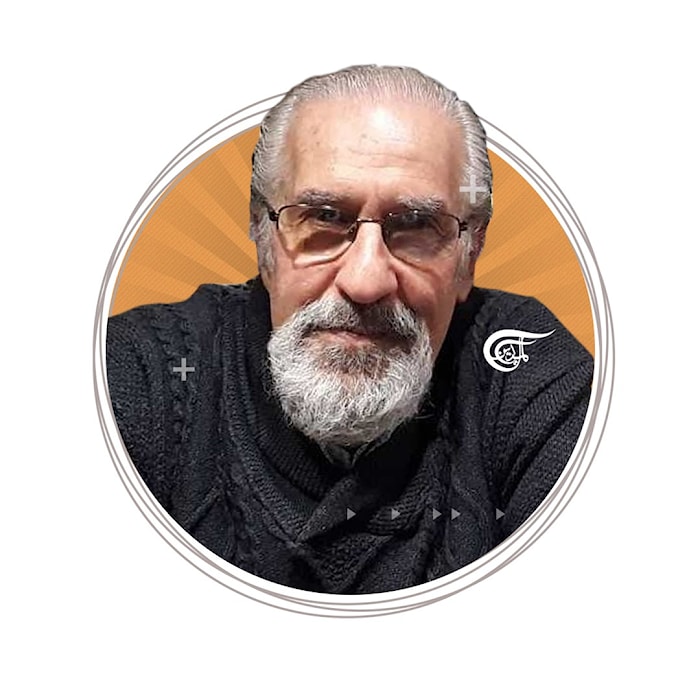




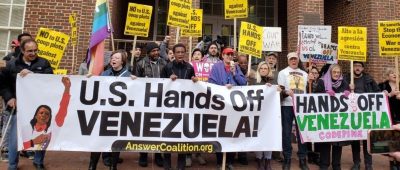



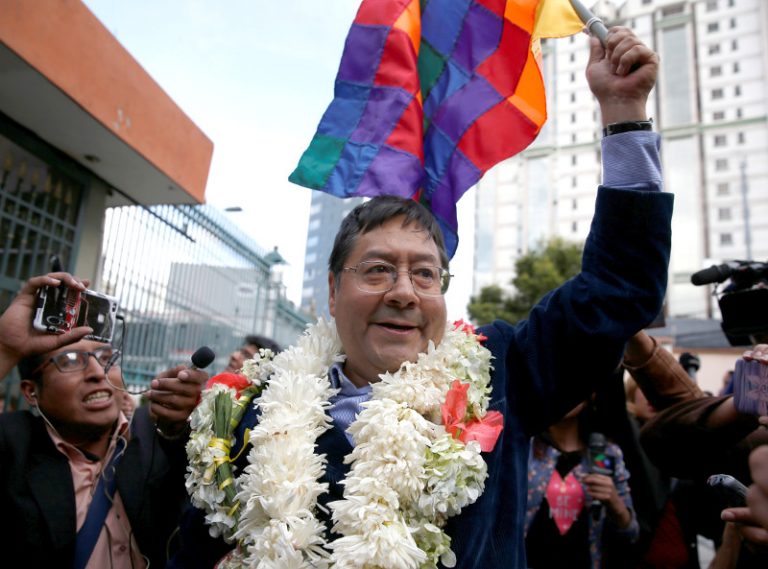
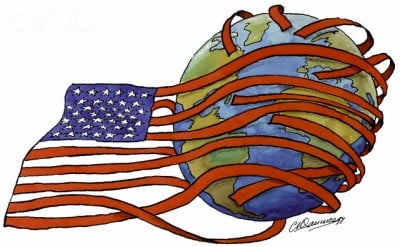
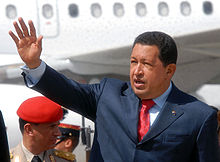


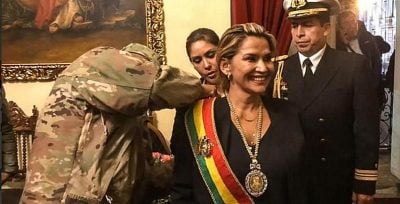
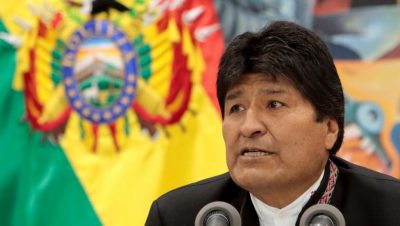



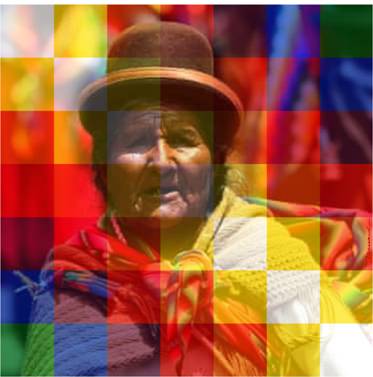



 In 1971 an Uruguayan journalist named Eduardo Galeano wrote a seminal book entitled “
In 1971 an Uruguayan journalist named Eduardo Galeano wrote a seminal book entitled “